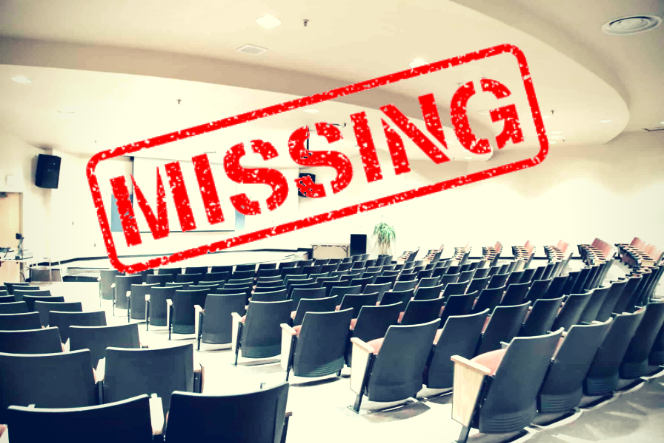The online recording of university lectures has been debated pretty much as long as the technology to do so has existed. With the number and diversity of Australian students enrolling in university growing, you’d think that online recorded content would be pretty standardised – but it’s not. For some reason, students who opt to view recorded lecture material are still labelled (by some) as lazy, unmotivated, and it’s regularly implied that they don’t value or prioritise their time and their studies. I’m here to say, “hold up”. There are a multitude of legitimate obstacles that today’s students face in attending physical lectures.
Online lecture recordings should be a legitimate representation of the physical class. Often sections of a lecture which are important for exam content will not be recorded, placing students who cannot attend at a distinct, unfair disadvantage.
The percentage of Australians who combine tertiary study with work is high in comparison to international standards. If the gap between students who do not struggle financially and students who need to work to support themselves is widened, we’ve got an issue about equal access to education. Universities have a responsibility to provide accessible learning – this includes access to content for those with disabilities, those who need to work to support themselves, those who travel long commutes to reach campus and more. It’s all well and good to say that university needs to be prioritised by a student more than their casual job – but what if they need that casual job to pay for rent? For groceries? To maintain the car they commute with?
Once upon a time, university was an exclusive educational experience for the wealthy or intelligent scholarship students (except that one time in the 70s when Gough Whitlam abolished fees). Nowadays, and in the close past, an abundance of work has been done to break down these barriers. High school students from low socioeconomic areas, Aboriginal and Torres Strait Islander backgrounds, rural environments and with various disabilities (categories which are statistically less likely to enrol in a tertiary course) are being targeted by the marketing efforts of tertiary education providers. In many ways, university education is more accessible than ever – getting enrolled, that is.

Once classes actually begin, the pathways paved for these students diminish. Although there are generally options throughout the week in terms of tutorial enrolment, there is usually only one lecture. If these are not recorded, this often means a student needs to be on campus on more weekdays than they might otherwise have to. For students who live locally in the university area and are unemployed, this may present no problem. But for those of us who work to support ourselves and need to commute daily, this paradigm creates more issues.
Chattr spoke to some current university students about their attitudes toward online lecture capture.
“All people should be able to access online lectures . . . some people live far away from campus and cannot always attend. This doesn’t mean that they are not interested in learning, it just means that they cannot be (at uni) at that exact time. Also, if students want to go over the content again they can.” Emily R, a communications student.
Kalyani, a student with low vision, told Chattr she finds it hard to access information in lectures due to the use of the projector screen. Online lectures allow her to read and take in all of the content she needs to know. Although her university is generally supportive of her condition, in some subjects Kalyani says lecturers are “pretty reluctant” to record their material. Similarly, Rachael, a Primary Education student with narcolepsy, had to defer her course:
“Concentrating and staying awake during lectures is really difficult. The lack of lecture options was a major factor as to why I deferred.”
Taylah, a psychological science student, uses online lecture recordings even for classes she can attend:
“I’m for online lectures. I like to use them as a study method to re-watch the lectures I’ve already attended.”
I’ve heard lecturers complain before that not only do students not show up for a lecture when it’s recorded, they don’t actually access it online either. This trend of behaviour is common. What usually happens is students are branded as lazy and unmotivated. Very few academics seem to ask why this occurs. If only a very small percentage of students access content but most students will pass the subject, the value added of the lectures themselves needs to be questioned. I am not arguing that lectures should not exist per say, but I think that it’s reasonable to suggest that some need to be revamped. If a student can maintain a strong grade in a subject through attending tutorials, reading lecture notes and completing readings without having to worry about the lectures, they will – it’s human. So how can lectures be adjusted to make them seem valuable to the students they’re aimed at?

During my own university experience, I have seen academics very effectively host their subjects bereft of formal, face-to-face lectures. Sometimes this is a seminar which effectively combines a lecture and tutorial; it allows for communication, participation and collaborative discussion in one session. This is generally easier on a student’s timetable as a subject’s contact hours can be met on one working day, rather than having to commute or have days off work for two, or even three, classes for one subject.
Emily C, a commerce and media student, believes there should be no conditions for the availability of online lectures. In the past, she had to drop a subject because its lecture and class times clashed with work commitments.
“It would seem that lecturers often do not take into account that many students work for a living and sometimes have conflicts with work and lectures.”
She explains that while students do try to work their tutorial times around their jobs, lectures are less flexible and much more difficult, especially if the lecture and tutorials are on different days of the week. She attends lectures when she can, but if work or family commitments get in the way, she views them online ASAP.
A 2018 study on Australian university students who study psychology suggested there is no correlation between final grades in a course, and viewing lectures online compared to physically attending the same lecture. Sure, some students might choose not to engage with online content if attendance is not compulsory – but we’re adults. If not attending lectures will make us fail the course, trust us to learn that lesson ourselves. If not attending lectures still allows students to do well in the course, perhaps the pedagogy needs to be reframed. Students aren’t the only antagonists in this story, and I strongly feel that shaming students for not attending lectures is a lazy method of pushing aside the real issues with university education design at hand. The main goal of academics who refuse to post their content online seems to be lecture attendance – this seems to be such a strange goal that I am yet to understand.
When lecturers who refuse to make their content accessible and also shame those who cannot always attend, there’s huge damage being done to the efforts of those same universities to attract and accommodate students from rural or disadvantaged areas, students who work or commute, and students with disabilities.

